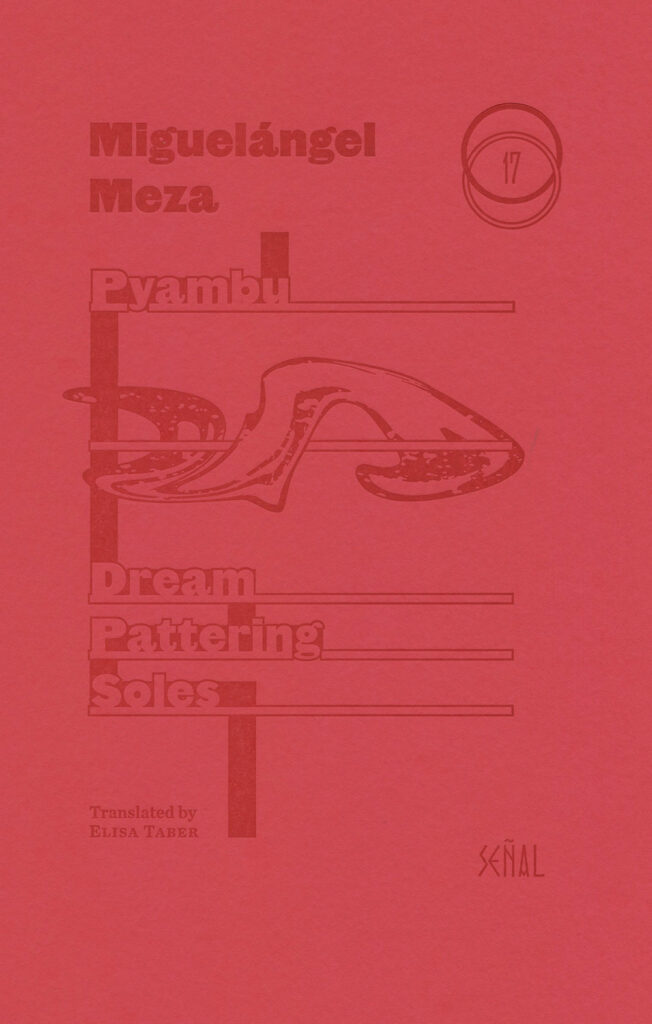In the valley.
Dream pattering soles,
vessel, full moon.
Stream…
nectar that oozes from fatiguing somnolence.
Voice of the sleeper,
the bones of the poor creak below.
Night
falls
slowly.

In the valley.
Dream pattering soles,
vessel, full moon.
Stream…
nectar that oozes from fatiguing somnolence.
Voice of the sleeper,
the bones of the poor creak below.
Night
falls
slowly.
In Ita ha’eñoso / Ya no está sola la piedra Formerly and Again Known as Pyambu / Dream Pattering Soles a voice mournfully asserts “I appear” and the world begins. Miguelángel Meza’s words are signifiers without hierarchy within the lyric structure that reference the cosmological Mbyá Guaraní narratives. Thus, the origin of earth is traced to the utterance of the first ñe’ë, or word-soul. Meza’s authorial style and references to a millenary Amerindian culture jointly point to another way of conceiving the world. The counterintuitive way that he renders the individual out of the communal is reminiscent of the Paraguayan embroidery technique, ñandutí, which means spider’s web. Threads extracted from, rather than woven into, a fabric trace a geometric pattern. He imitates this practice by claiming authorship through his lyric synthesis of a communal narrative. The poet seems to say through those that came before him: identity lies in erasure, not mark-making.
Miguelángel Meza is a Guaraní poet and cultural promoter born in Caacupé in 1955. He has contributed to numerous anthropological and linguistic research studies, as well as translations, and worked for the National Ministry of Culture of Paraguay. His books include Ita ha’eñoso (Alcándara), Perurima rapykuere (Ediciones Taller), and Perurima pypore (Servilibro). He is the founder of the cartonera press Mburukujarami Kartonéra, with which he has published numerous titles authored by him and others.
Miguelángel Meza's Dream Pattering Soles is a book that speaks directly to our times. Spiraling through themes of loneliness, poverty, and emptiness, the volume returns time and again to images of a natural world where the moon appears, "as if ashamed to dawn on earth." Taber's haunting translation from Guaraní and Spanish will echo in readers' minds for years to come.
Paul Worley
Elisa Taber is a PhD candidate at McGill University. Her writing and translations are troubled into being, even when that trouble is a kind of joy. An Archipelago in a Landlocked Country (11:11 Press) is her first book.
ISBN: 978-1-946433-87-9
Chapbook
Saddle-stitched. 48 pp, 5.25 x 8.25 in
Publication Date: December 01 2021
Distribution: Asterism Books (US)
Series: Señal #17